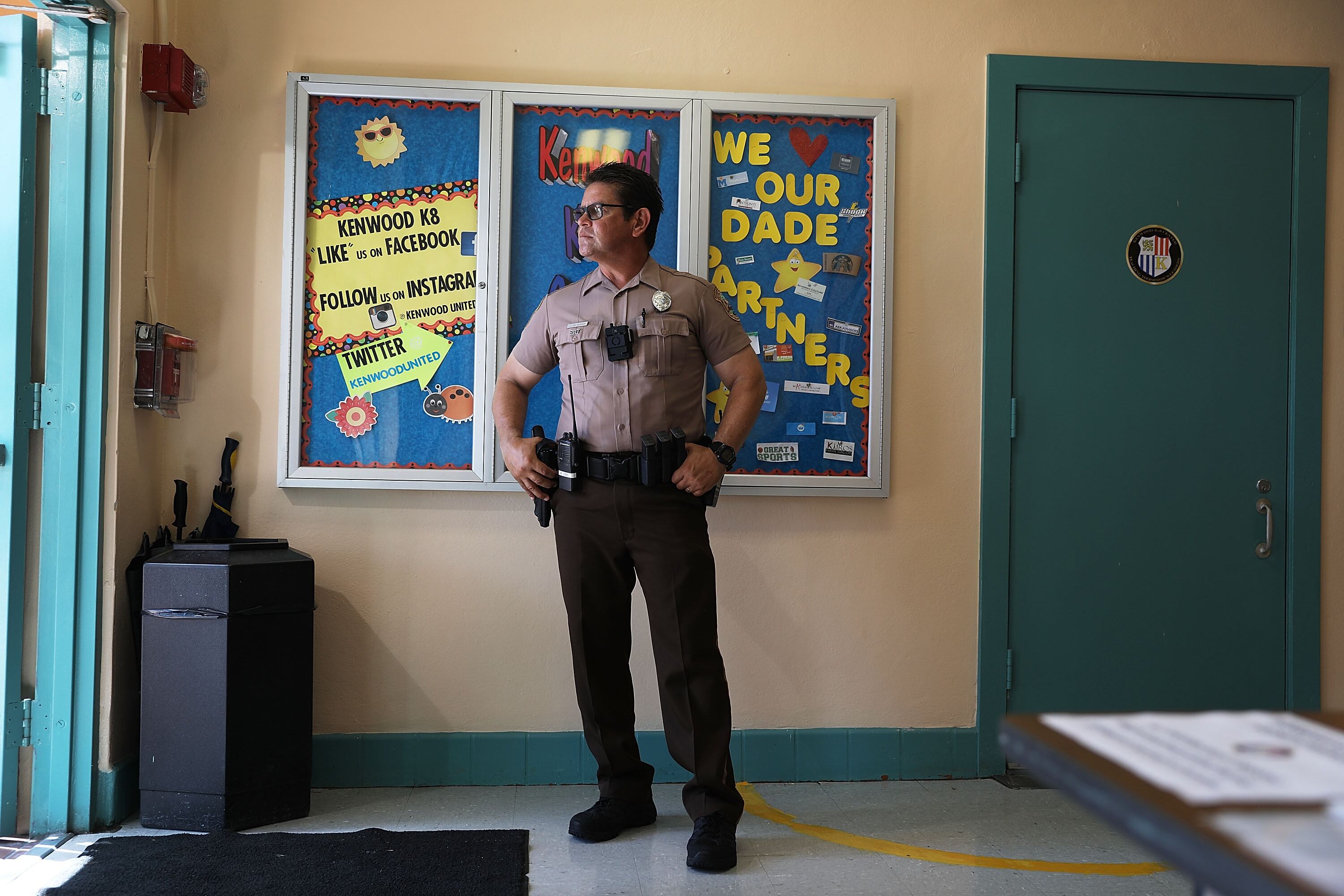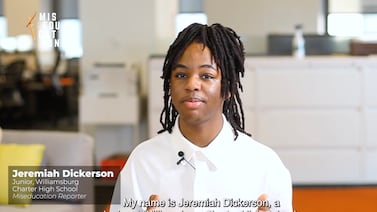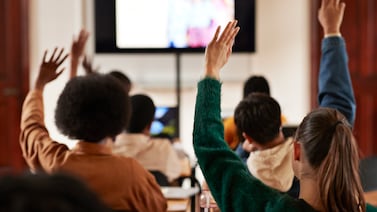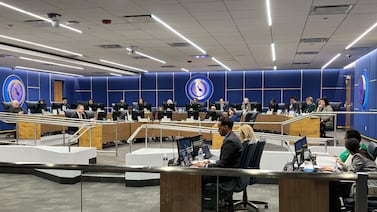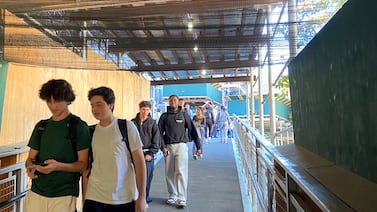White students feel safer in the presence of police than black students, according to a recent survey of New Orleans students.
The survey, conducted by Tulane University during the 2018-19 school year, showed that 69% of white students said they felt safer in the presence of police, while only 40% of black students said the same.
The recent killing of George Floyd, a black man killed by a police officer in Minneapolis, is fueling nationwide protests and prompting school districts across the country to reexamine the role of police in their schools. Tulane conducted the survey last school year before the pandemic, but released it today.
The issue holds new weight as protesters around the country demand police reform. In Minneapolis, the school board unanimously voted to end its contract with the police. In Denver, school board members have called for similar actions. In New York City, Department of Education employees wrote a letter to city leaders demanding a reduction in police funding and a change in training for school resource officers.
“There is this really, really large racial gap in students’ experiences with the same police force,” said Lindsay Weixler, the associate director of Tulane’s Education Research Alliance. “The majority of black students, and these are kids as young as sixth grade, do not feel safer when police are present. And that is the exact opposite of what you would want the police to do for children.”
Students felt more positively about security guards at their schools, but the racial gap remained. About 77% of white students reported feeling safer when guards were present, but only about 54% of black students reported the same.
The New Orleans results aren’t surprising and they align with prior research.
Another survey of thousands high school students in eight California districts conducted in the 2017-2018 school year found that black students felt less safe than other students in the presence of police officers both in and out of school.
The gap between black and white students surveyed was similar to a gap among adults in a national Pew study conducted in April. It found that 54% of black Americans surveyed had confidence in the police acting in the public’s best interest, compared with 84% of white Americans who felt that way.
Twenty-one of the 77 publicly funded New Orleans charter schools administered the survey and 3,807 students, from grades 6 to 11, responded.
“If we were to go on the street somewhere and see a police officer they look at us differently,” said Taylor Porter, a recent graduate of Warren Easton Charter High School. “We never know when the switch is going to be, we don’t know if they are going to come up to us and think something is wrong.”
Wilfred Wright, a recent Landry-Walker High School graduate, said he felt safer in the presence of his school’s police officer, but not in the presence of police outside of school.
“You don’t want to make it feel like a prison,” Wright said. “You want to make sure you are still in an environment where you know that you can grow, you can learn, and you can be yourself. And the security guard or the police is there to make sure nothing goes wrong.”
Balancing the reality of how black Americans are treated by the police with the desire to ensure schools are safe can be difficult — which is why it is important to make sure officers at schools foster good relationships and friendships with all students, Porter and Wright said.
“Maintaining the relationship of ‘I’m here to protect you, I’m here to make sure things go the right way,’ is the only reason why he is there,” Wright said. “Not to inflict some negative notion of what school is supposed to be.”
About half of public schools in the country have sworn police officers, according to recent federal data.
Some students say it’s time for change. Students Deserve Justice, an advocacy group in California whose work contributed to the Los Angeles Unified School District Board ending random searches in schools, is campaigning for the defunding of school police. They’d like the money to go toward more psychiatric social workers and counselors, and more support in schools for black communities.
“Every year LAUSD spends $70 million dollars on funding school police. Let that sink in,” said student leader Mya Edwards on Instagram live. “They do that to protect the black and brown communities in our schools, but really, in reality, they pepper spray us, they make us feel unsafe every day we walk into school.”

